Stay in the know on all smart updates of your favorite topics.
People get more connected and technology becomes part of our daily life. Between 2014 and 2015 there was a 27% growth of internet traffic in Amsterdam. Eleven out of fifteen Trans-Atlantic data cables are connected with or go through Amsterdam and the AMS-IX is the second largest internet exchange point in the world. In 2016 Amsterdam was ranked second in the European Digital City Index. Do you work on a smarter city? Share your technologies here!
Smart buildings with IoT

What is the value of Smart Buildings with Internet of Things?
The choice for this national IT-Circle event’s theme Smart Building with IoT is not without a reason. Is IoT a hype or can it add value to owners, operators and users of buildings? What are challenges that need to be solved? Will smart buildings fit into the goal of providing healthy, safe, sustainable and pleasant working and living environments for the users? Will internet improve the buildings and the users?
During this informative national IoT event these questions – and many more – will be answered. The value of real-time data processing – and how to act on the data - will be presented. Next to that TU Delft will inform us about their Smart Building/Campus and we will have a look at the added value of LiFi. Obviously there will be time for questions and discussion during the sessions, the various breaks and lunch.
Sign up for the ICE IoT and learn more about Smart Buildings (use case), Smart Society (real time IoT data) and the use of IoT applications like LiFi.
NOTE: this event is for IT-CIRCLE MEMBERS ONLY. For more information about IT-Circle Nederland, see www.ITcircle-nederland.nl.
From hype to adoption: Blockchain meetup #1
How do we turn the Amsterdam Metropolitan Area into a Blockchain hub? That is what the Amsterdam Economic Board is researching together with the City of Amsterdam and StartupAmsterdam through a series of 6 meetups. Because Blockchain could be an important part of the solutions for the six urban challenges of our metropolis. The first meeting tried to find an answer to the question: “How do we ensure more adoption of Blockchain technology now that the hype seems to be over?
Read the full article by clicking the link
Sensemakers on Smart Buildings
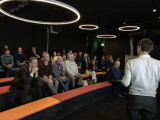
Every 3rd Wednesday of the month we have lectures, discussions about IoT-related subjects. This time we have 2 speakers on Smart Buildings. AO Pepijn van der Spek Innovation Manager at the Shared Service Center of the Ministery of Internal Affairs.
Doors open at 18.00 for networking & discussing/showing projects.
Presentations usually start at 19h & end around 20.30 with "open mic" when you can share your own story/event/question.
Sensemakers & The Things Network LoRaWan DeepDive & beginnersworkshop

Sensemakers and The Things Network Amsterdam join forces and co-organize a free event about LoRaWAN.
What to expect:
- Presentation from Johan Stokking, co-founder and tech-lead of The Things Network
- LoRaWAN deep dive through QnA
- Getting started/going pro with The Things Network workshop
For whom?
This event is for both beginners and experts. For beginners who like to start working with TTN & LoRaWAN, we’re preparing a hands-on workshop, we will bring some hardware to play with. You just need to bring your laptop!
Looking for innovative and impactful IT solutions for public administrations
Do you want to become the next public sector digital champion? Submit your solution for the World Sharing and Reuse Awards by 28 February 2019!
On 29 November, Mariya Gabriel, the Commissioner for Digital Economy and Society officially launched the Sharing & Reuse Awards 2019. The contest will highlight the most innovative and impactful IT solutions for public administrations (both open source software and IT shared services).
The prizes that can be won are € 15 000 for the first team and € 10 000 for the runner-up in each of these 4 categories:
Most innovative open source software
Open source software with the biggest impact on citizens or businesses
Most innovative shared IT services (commonly developed or shared)
Shared IT services (commonly developed or shared) with the biggest impact on citizens or businesses
The Sharing and Reuse Awards will take place on 29 June, 2019 in Bucharest, Romania. If you would like to become a contestant in the awards, you can submit your solution before 28 February 2019.
Read more and propose your solution here: https://joinup.ec.europa.eu/collection/sharing-and-reuse-it-solutions/sharing-reuse-awards-2019
IoT Tech Expo Europe 2019
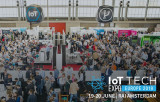
Europe’s leading IoT Conference Series; the IoT Tech Expo Europe will return to the RAI Amsterdam on the 19-20 June 2019 to bring together key industries for 2 days of top level content and discussion. Exploring the latest innovations within the Internet of Things and covering the impact it has on many industries including Manufacturing, Transport, Supply Chain, Insurance, Logistics, Government, Energy and Automotive, this conference is not to be missed.
Key topics examined include: smart building & facilities management, building the connected supply chain, intelligent city and transport management, smart grid data management and analytics, asset monitoring and management, delivering smart connected new products, and more.
The fourth annual Europe event will host 3 co-located events covering Blockchain, Cyber Security & Cloud and AI & Big Data, with 10,000 attendees expected to attend including CTO’s, Head’s of Innovation and Technology, IT Directors, Developers & Start-Up’s, OEM’s, Government, Automotive, Operators, Technology Providers, Investors, VCs and many more.
M-Health Congress 2019
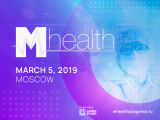
On March 5, 2019, the fifth M-Health Congress will take place – the annual event organized by Smile-Expo, dedicated to innovations in medicine and healthcare.
The event will also include an exhibition area, where attendees will have a chance to ask questions to producers of medical devices and software, and test products. Exhibits will embrace cloud services for medical facilities, devices for remote monitoring of health state, and many other things.
Specifically, the congress will be useful for:
• representatives of state medical facilities;
• practitioners;
• owners of private clinics;
• investors;
• mHealth startups;
• developers of medical software, devices, and other representatives of the digital medicine market.
Hydrogen: no technical considerations but geopolitics prevent its future use
In my newest blog post, I elaborate on the use of hydrogen. Hydrogen has many advantages (easy storage). However, to produce it, a lot of electricity is needed which can better be deployed directly. The import of hydrogen from countries where the production of electricity is much cheaper is a feasible solution. But as the countries most eager to export hydrogen are the Gulf states, many doubts are arousing.....
A slightly different version in Dutch can be found here: https://hmjvandenbosch.com/2018/12/17/waterstof-vooral-geopolitiek-bepaalt-toekomstige-rol%EF%BB%BF/
Mayor Franc Weerwind about the Digital Transformation of Cities
On December 4, the Mayors of over 40 cities were invited at the Committee of the Regions in Brussels to discuss the digital transformation. They are all part of the Digital Cities Challenge, an initiative of the European Commission to help European cities develop and implement policies that focus on smart, sustainable growth through the uptake of advanced technologies by local stakeholders, through building up local innovation ecosystems. The Amsterdam Metropolitan Area is one of the 6 Mentor Cities of this challenge, based on the region’s track record in the digital economy and the application of digital, data and smart cities innovations.
Mayor Franc Weerwind of Almere, also Amsterdam Economic Board Member responsible for Digital Connectivity shared his vision and principles. Weerwind’s key message to his fellow cities and region is cooperation outside the beaten tracks: breaking silos within municipalities, but also cooperation between government, knowledge & education institutes and the regional business sector.
“The digital city is a citizen-driven, inclusive and green city – it is not driven by technological progress, but by the demand and needs of our citizens,” Mayor Weerwind said. “We as Mayors can use the power of digital transformation itself to get things done by linking the right skills, knowledge and organisations together.”
Read Mayor Weerwind’s full speech with links to further information about the activities in the Amsterdam Metropolitan Area via the link below.
Architecture Now #11: Connected Architecture

Data as a design tool: smart minds on how to create smart cities.
In times of unprecedented technological change - think of Big Data and the Internet of Things (IoT) - every building and designed public space is a potential generator and transmitter of data. This allows architects and designers to create innovative “connected” projects to improve the quality of life within our (smart) cities. This evening we explore the impact of connected architecture and infrastructure together with engineers, architects, and urban adventurers. How can we use connected space to create happier, more sustainable places? How can we involve inhabitants and the municipality to maximize the impact of the IoT? An inspiring evening on tech, design, ethics and making better places.
MX3D – Smart Bridge
The world’s first steel bridge, 3D printed by robots, will soon span a canal in the centre of Amsterdam. This ground-breaking project is an initiative of the Dutch start-up MX3D and the brainchild of designer Joris Laarman. They have teamed up with a consortium of mathematicians and IoT specialists to develop a smart sensor network to monitor the bridge’s health in real time. These sensors will measure environmental factors (air quality, temperature), enabling engineers to measure and monitor the bridge’s health. The project illustrates the speed with which this new technology and possible applications are developing. What challenges did the face, creating the smart bridge? And what specific data will it generate? Gijs van der Velden & Alec Shuldiner share their insights.
Heren 5 – Het Fundahuis
Every month Funda, the largest house site in the Netherlands, has over 4 million unique visitors. The interaction of all those visitors ensures big data. Can you design a house based on that data? Heren 5 took up the challenge together with Dingeman Deijs Architects. The data from Funda shows that the Netherlands is looking for villas and castles, but that terraced houses are the most sold homes. The tension between dream and reality has been the starting point for the design of the Funda Huis. They look like two extremes, the typical Dutch terraced house and the large free-standing bastion, but they are more compatible than you might think. Jeroen Atteveld presents their designproces.
Begin 2018, the BNA initiated the design study ‘The city of the future‘, that looks at new ways of area development. Ten multidisciplinary design teams were involved in intensive design studies at test locations in cities such as Amsterdam, Rotterdam and Eindhoven. Together with designers and municipalities they aimed to answer the question: how we can link construction tasks to energy transition, innovations in transport, circular economy and other system-and network innovations in times of the next compaction wave? BNA-director Fred Schoorl explains the results and Bram van Ooijen and Bart Mispelblom Beyer, team members of Team Triangel, present their experiences within the project.
DATAstudio
DATAstudio is a program within Eindhoven in which available data and technological possibilities are combined with the reality of the street and the needs of the residents. What can the ‘smart city’ mean for living together in a neighbourhood? And (how) can technology help to promote citizen participation? Linda Vlassenrood shares their experiences and insights. What were the most important lessons learned?
Tada
In rapidly digitising cities, ethical and responsible use of data is a major challenge. As is the case in Amsterdam. Professionals from the Amsterdam region therefore wrote the manifesto ‘Tada – data disclosed’ which contains values that, according to the founders, should be valid in responsible digital cities. Douwe Schmidt talks about the promises of data and new technologies for urban challenges. How do we combine optimism and alertness?
With amongst others:
Gijs van der Velden | Cofounder of MX3D en General Manager of Joris Laarman Studio
Ger Baron | Chief Technology Officer, City of Amsterdam
Alec Shuldiner | Sr. Product Manager, Analytics & Information Architecture at Autodesk
Linda Vlassenrood | Program Director International New Town Institute / Program Manager Het Nieuwe Instituut
Jeroen Atteveld | Heren 5 architecten
Fred Schoorl | Directeur BNA
Mira Brethouwer | Arcadis design & consultancy
Bram van Ooijen | Stedenbouwkundige MUST
Bart Mispelblom Beyer | Tangram Architecten
Douwe Schmidt | Campagne strateeg Tada
This event will be in English.
Smart Humanity – Hackathon
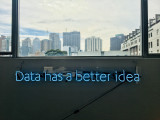
Is de mens altijd slimmer dan de techniek, of kunnen we techniek zo inrichten dat de mens er niet doorheen kan?
Op de bovenste verdieping van het Eye Filmmuseum zal tijdens Smart Humanity, op 13 december 2018, een hackathon plaatsvinden. Je kunt als team of als individu inschrijven in een van de divisies passend bij je niveau. Ook zijn er masterclasses waar je de basis kunt leren en daarna meteen in de praktijk mag brengen met een echte ‘capture the flag’. Lukt het jouw team om meer punten te scoren dan de andere teams? Schrijf je snel in en mis geen seconde van dit event!
Deze hackathon is speciaal! Het is namelijk de eerste keer dat Tesorion, Defensie, Politie en NCTV in 1 hackathon samenwerken. Ook is nieuw dat er verschillende niveau’s zijn:
– Beginners kunnen een masterclass volgen en worden de verdere dag ondersteund
– Voor gevorderden en professionals zijn er specifieke casussen vanuit Tesorion, Defensie, Politie en NCTV.
De minimum leeftijd voor deelname is 15 jaar. Iedereen die zich individueel inschrijft wordt later in een team geplaatst. Deelname aan de hackathon is gratis.
Prijzen
Prijzen die je kan winnen zijn afstudeer stages en gesprekken voor een baan of opdracht.
Smart City Portal, will you join?
We are looking for our "Best Practice Portal" for content in our (currently most in Dutch) Smart City Portal, where cities, supliers and unions of government (like VNG) are publishing content.
Our dream is an appstore with governmental standard processes, customer journeys etc.
For more info: https://www.mavim.nl/nieuws/smart-city-portal
Let's Startup 2019
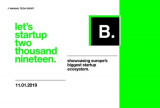
On Friday, January 11 2019 we will start the new year with our annual tech
festival “Let’s Startup”. On this day we celebrate our members as well as the industry and everybody is welcome! Let’s Startup is a festival codesigned with our B. members, to celebrate entrepreneurship at B. and bring together our extensive international network.
What to expect?
During the festival, expect a myriad of workshops, masterclasses, speed dating and networking opportunities to help you build, grow and scale your business. We will also take the opportunity to kick off some new services and programs at B. that will help ease community collaboration and contribute to the growth of our members. At night, we’ll bring everyone together to raise glass to the new year and dance.
How does it work?
All activities at the festival are divided in three pillars: fast growing
companies, future talent and corporate innovation. Also, there is a main stage with some keynote speakers and panels with industry leaders. Members are invited to apply for a spot at our festival. Think of hosting a workshop or masterclass or providing an interactive showcase of your product or service. We encourage all of you to contribute and attend this annual community festival.
Smart grid: in need for digital and social inovation
The development of smart grids illustrates the contribution of (digital) technology to the process of energy transition. At the same time, the involvement of the local community turns out to be mandatory. Why? In my newest blog post, I elaborate on the role of social innovations like energy cooperations.
For those who prefer reading n Dutch; the same post can be read here: https://wp.me/p32hqY-1Ht
The Black Box Bellagio

Welcome to the Black Box Bellagio - an unusual casino that won’t take your money, but is after your freedom, integrity and private data instead. Play with the (un)fairness of expected values, predicted risks, and giving up your identity. Disclaimer: The house always seems to win.
The internet services we think of as free are often paid for with our data: it is the price of access, and is used to determine our treatment and advantages. Our data feeds the algorithms which can unfairly or wrongly categorise, exclude or discriminate against us. The Black Box Bellagio uses the dynamics of a casino to communicate the asymmetry of this relationship. At this casino, like on the internet, your personal data determines the advantages you get, the luck and misfortune you experience, and how much it really costs you to play.
The Black Box Bellagio has been developed by Roos Groothuizen (1992, NL), an Amsterdam/Utrecht-based designer and artist, who cares about digital rights. Fascinated with the unfair distribution of information and how online algorithms systematically discriminate us, her work reflects on in-depth research and recent developments, often with interactive or game-like elements. The Black Box Bellagio has been realized in collaboration with Ymer Marinus and the Waag.
Film documentation from De Nieuwe Anita (May 2018), by Jimena Gauna for Waag:
The Black Box Bellagio at de Nieuwe Anita / Aftermovie
This project has received funding from the European Union’s Horizon 2020 research and innovation programme under grant agreement No. 732546. The Black Box Bellagio is organised as part of DECODE, a project developed by 14 European partners. Through this casino DECODE aims to engage a new group of people in conversations about personal data, privacy and data commons.
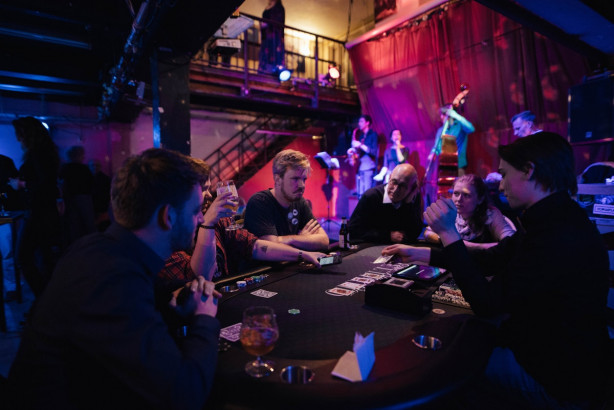
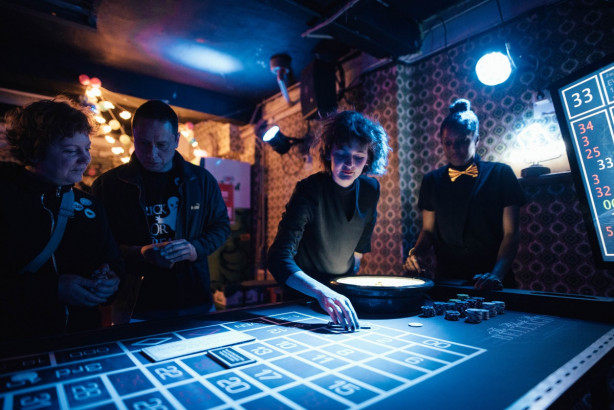
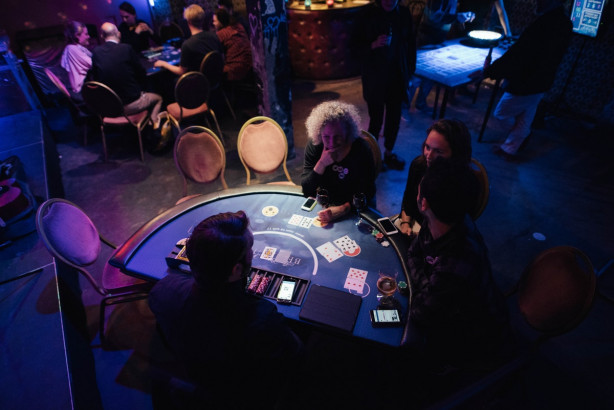
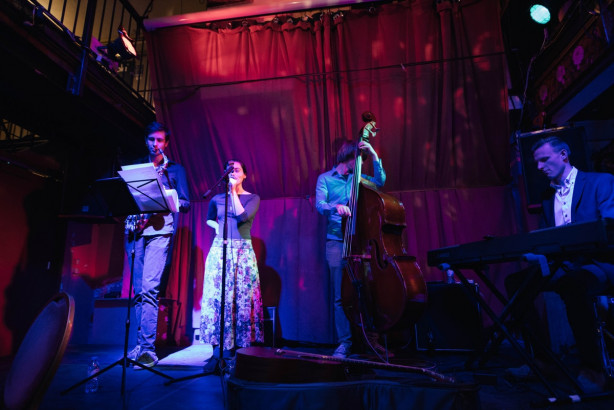
Pictures by Jimena Gauna for Waag
More picture and information: Click here
How to buy / sell smart cities
Worthwhile read by James Blackman.
Some of my observations / suggestions:
1) too much top-down: it doesn't focus (enough) on the end user / citizens who should play the central role in any smart city activity
2) page 4 'how to monetise the data from cities': cities do not own data they only store data that is owned by its citizens
3) page 5 'In Europe, most projects retain central government funding' and 'Governments typically offer subsidies, grants or tax breaks' Mr Citron hasn't looked at the Amsterdam Smart City model I am afraid, where governments in the Amsterdam Region invest instead of subsidise
4) page 10 who owns the data that goes through the 'smart light poles' ? Will US citizens be as enthusiastic when a foreign (for example Russian or Chinese) carrier would deploy the smart light poles in a city?
5) shift from this single silo approach (lighting) to a more holistic approach
6) regarding platform approach: Shouldn't all these developments be open source to prevent the vendor lock-in? There is no one size fits all platform nor in different parts in a city nor in different cities. One should choose little tailored made open platforms also from the perspective of a potential vendor lock-in
If you use the approaches mentioned in the article and local governments do nothing, platform companies will control the different smart cities chains from user to supply
Positives for local governments of these approaches are:
+ Developments will come naturally
+ best offer wins
+ government has little to do (one tender)
Negatives could be
- vendor lock-in
- Huge investment, high risk
- Market is still too uncertain no room is left for failure and uncertainty
- Might loose control and steering as a local government
Blockchain & Bitcoin Conference Philippines

Blockchain & Bitcoin Conference Philippines is an event organized by Smile-Expo – the international company which has already held 50 blockchain events in 25 countries. This year, Smile-Expo will coordinate the second Blockchain & Bitcoin Conference Philippines, uniting top crypto experts from different countries.
Key points:
• FinTech Ecosystems in Asia / Fintech application in Southeast Asia;
• Blockchain for business;
• the software development business in Blockchain;
• how might blockchain technology revolutionise tax / Blockchain potential to simplify and automate tax compliance and transparency. Taxation, Securities Law and Regulating ICO’s / Token Launches;
• privacy and national Identity / Governance in a Digital, Decentralized World.
Agenda for Manila – December 6, 2018
• Сase study: Large investment funds are looking into crypto. Implementation of the Blockchain technologies in IoT, AI, AR, healthcare, lending industry, wealth management.
• Panel discussion: Smart Contracts and Legal Contracts.
The unique feature of the conference is discussion of the blockchain use cases in many different spheres in addition to financial segment – in the Philippines and other countries.
Smart Humanity 2018 - KNVI jaarcongres
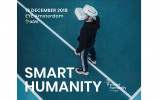
De samenleving transformeert door digitale technologie en daarmee verandert de rol en de plaats van de mensheid. Maar de visies verschillen. De een verwacht dat robots en algoritmes de wereld overnemen, de ander ziet een prachtige samensmelting van mens en cybernetica, terwijl weer anderen de mensheid via ICT de vervuilde aarde zien terugbrengen naar een biologisch juiste balans. Hoe het ook zij, de mens staat centraal in onze informatiemaatschappij en behoort centraal te blijven staan; ook bij alle huidige en toekomstige veranderingen. De KNVI heeft het begrip ‘Informatieprofessional 3.0’ en de ‘Digitale transformatie’ neergezet en uitgewerkt in diverse beleidsplannen en publicaties.
De dag wordt gevuld met korte en lange lezingen, debatten, actieve sessies, buitenactiviteiten etc. aan de hand van 5 inhoudelijke thema’s:
• Smart GLAM (Galleries, Libraries, Archives, Musea)
• Smart Me & Ethiek
• Smart Mobility
• Smart Industries
• Smart Cities
Ook zullen diverse wetenschappelijke onderwerpen worden opgenomen in het programma.
Op de bovenste verdieping van het Eye Filmmuseum zal tijdens Smart Humanity, op 13 december 2018, een 24 uur durende hackathon plaatsvinden. Je kunt als team of als individu inschrijven in een van de divisies passend bij je niveau. Ook zijn er masterclasses waar je de basis kunt leren en daarna meteen in de praktijk mag brengen met een echte ‘capture the flag’. Lukt het jouw team om meer punten te scoren dan de andere teams? Schrijf je snel in en mis geen seconde van dit event!
Bekijk de brochure hier: https://issuu.com/knvi/docs/knvi_brochure_digitaal_01
VPRO Tegenlicht Meet Up #143: Verovering van ons DNA
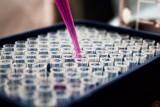
Heeft gepersonaliseerde gezondheidszorg via DNA-analyse de toekomst?
Estland heeft een biobank opgericht waar binnenkort het DNA van bijna 150.000 inwoners ligt opgeslagen. Het sterk gedigitaliseerde land wil op die manier een preventieve en gepersonaliseerde gezondheidszorg opzetten op basis van DNA. Dit wil zeggen dat artsen adviezen kunnen geven gebaseerd op een individueel risicoprofiel, met effectievere therapie en lagere zorgkosten als gevolg. Geniaal of beangstigend? Terwijl Estse burgers in alle vertrouwen hun DNA zo snel mogelijk afstaan aan hun overheid, hebben wij zelfs geen degelijke wetgeving over het gebruik van dna-analyse in gezondheidszorg. Hoe gaan wij deze technologie inpassen in onze samenleving? Wat zijn de gevolgen van gepersonaliseerde gezondheidszorg? Wie heeft de controle over ons DNA?
DNA – paspoort
Stel, we maken DNA – analyse bij iedere burger bij geboorte verplicht. Handig, want op deze manier kunnen we gezondheidsrisico’s beter inschatten en een preventieve geneeskunde beter uitbouwen, wat bespaart op de gezondheidszorg en de werkdruk verlaagt. Maar hoe gaan we dan om met de informatie die zo’n test weergeeft?
Zou je dan alle resultaten van de test willen weten, ook de niet-behandelbare ziektes die zich in de toekomst gaan ontwikkelen? En wie mag dan zo’n paspoort inkijken en wanneer? Je arts, verzekeringsagent, de politie, de overheid en/of je werkgever willen allemaal misschien wel deze informatie kunnen inkijken om betere inschattingen te maken. Hoe passen we DNA-analyse technologie toe in onze maatschappij?
Met in dit programma onder anderen:
Tom Reijner | Researcher VPRO Tegenlicht
Ron van Schaik | Hoogleraar Farmacogenetica Erasmus MC
Susanne Baars | Oprichter Human Genome Foundation, CEO Social Genomics
Cisca Wijmenga | Hoogleraar Humane Genetica
Make digital rights as basic as human rights, say CTOs
The chief technology officers of Amsterdam, Barcelona and New York have launched a joint initiative to better protect peoples’ digital rights.
Stay up to date
Get notified about new updates, opportunities or events that match your interests.

